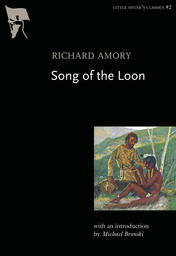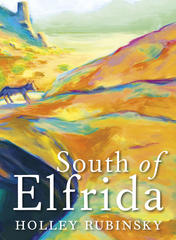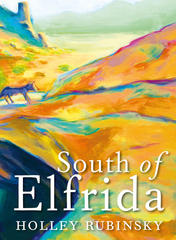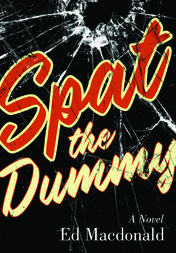Fiction




The shore of Dawson City was a trampled mess of mud. The banks of the Indian River were thick with boats, most of them empty, and not a tree was to be seen. They hauled their boats in anywhere they could find a place, acutely aware of the envious looks given to the teetering heap of peeled poles and strong branches they had tied to their freight. They all blessed whatever gods and goddesses had ensured they would make the trip in with experienced packers who knew enough to stop in a heavily wooded arca and spend two days cutting and peeling the supports they would need for a decent, half-dry camp.
Dawson had been thrown together in a marsh of mud, the streets beaten in, around, through, and among the stumps left when the trees were cut. There were log-butts and rounds set in mud and stacked to form walls which, roofed with whatever came to hand, were called houses. There were log houses, pole houses, and board houses. Canvas walls, canvas roofs, anything that would stop or even slow down the wind and give some semblance of privacy, had been used to make shacks, shanties, cabins, hoochies, stores, hotels, and saloons. The hillsides were covered with tents, the streets were a press of anxious and tense men. Dogs, mules, horses, and oxen wandered the banks looking for scraps, unguarded food, forage, grass, green shoots, and if the animals had once belonged to someone, nobody claimed them now.
Everywhere Ceileigh looked, she saw stores and saloons. Two men stood swinging at each. other in the middle of a muddy street, both of them too drunk to aim, too drunk to hit, too drunk to feel pain if they did happen to get hit, and too angry to stop flailing. A group of children stood watching, giggling, pointing at the mud-smeared inebriates.
"Children," Cora gasped, "in this place?"
"Sure," Chilkat Joe shrugged. "Come in on the steamer before everything iced up last fall."
Gambling halls, dance halls, blind pigs, brothels, and saloons vied for the gold dust the few fortunates had managed to wrest from the streams and rivers. Unemployed, desperate men with no money to file a claim, no money for supplies, no chance of persuading anyone to front them to a grubstake, and no way to either improve their situation here or get back out to civilization, stood waiting to do whatever needed done to make a few dollars to buy food.
They set up their camp, tents half floating in the mud, the peeled poles rafting them out of the goo. They shared a meal and sat dazed, unable to believe that after three and a half months of struggle and discomfort, this mud bog was what was waiting for them.
"I can have me a job," Ceileigh said quietly, "starting tonight, fifteen dollars a night, playing in a saloon." She shook her head in disbelief. "I never thought to make fifteen dollars a night guaranteed."
"What, Mary dared, "do you plan to do when your baby is born?"
"Who has a choice? I've got until October to make some money. After that ... well, do as best I can, I suppose."
"What would you do, Joe?" Aggie asked. Chilkat Joe looked around at the horror that was Dawson, then spit carefully over the edge of the planking, into the mud. "lf l was you?" He grinned at her. "I'd find me a millionaire, get married, then take his money out of this mudhole, put it in a bank in the south, and wait for him to either join me or die and leave me the whole kit and caboodle. l would not stay in Dawson."
"Why?" Lily asked.
"Because the cream's been sucked already." He tilted his head in the direction of a ragged young man begging on a street corner. "He had dreams, too, l bet. And now ... all the best opportunities are taken." He turned to Ceileigh and smiled apologetically. "Fifteen dollars a night sounds good but it's going to cost you five dollars for supper. And it won't be worth eating. And that's now, when the thaw's making travel easier. Wait until winter when it's frozen solid. Fifteen dollars won't hardly keep you fed, let alone give you a warm place to sleep."
"What would you do?" Aggie repeated.
"Serious?" He looked at her, then at the mountain of gear they had toiled so hard to bring so far. "I'd move tomorrow. I'd send my packers into the saloons to find out where the rumour of strike is, then I'd get myself to that creek and I'd forget any idea of a store! I'd build me a clean hotel, sell drinks and meals, and I'd try for something that no place in Dawson has got. Clean plates, clean cups, and good food."
"I don't have any money to hire. . . " Mary began.
"I do," Lily said quietly. "Mind you, I don't have a whole helluva lot of freight. But," and she smiled slowly, "I bet it wouldn't be hard to send some packers back up the river we just came down ... meet that steamer he was talking about ... buy the freight before it even gets here. . . "
"What I'd do," Cora said, bending forward eagerly, "I'd round up all these abandoned and forgotten sleds, rafts, and whatever else I could find, and I'd get those mules, horses, and everything else left to starve, and I'd go meet those poor souls trying to get here across the lakes ... and charge 'em, either cash or freight, I don't care, to bring 'em to Dawson. There isn't enough wood left back there to float a flea, and the quicker this place thaws, the wetter and muddier it's going to be."
"What we seem to have here," Ccileigh said thoughtfully, "is some people with money, some people with ideas, and one or two people with a bit of both."
"I got no money," Aggie laughed. I don't even have many ideas. Except," she looked at a gaunt ox wandering down the muddy strip that passed for a street, "that poor animal might be better off boiled up with some beans than it is dying slow like that. I am," she confessed, "godawful tired of salt pork."
"The steamboat will be up from the south by the end of the month," Chilkat Joe said, "and it'll be jammed from front to back with people who are going to need just about everything you can think of. The whole world wants to get rich panning gold, and all the claims around here are already taken. So the newcomers will spread out from Dawson. lt would be a fine idea to be waiting for them."
"Why don't you pan gold?" Ceileigh asked. "You know this place like the back of your hand, and you'd probably get rich a lot quicker that way than you'll ever get packing other people's gear across the wasteland."
"Because no white man is going to let no Indian strike it rich and live," he said flatly, his eyes narrowing, his anger showing. "As soon as I stop being a mule for those people, I'm dead."
Ceileigh walked from one mud-smeared end of Dawson to the other, watching everything. Something inside her wanted to dispute Chilkat Joe's estimate, but she couldn't argue with the evidence of her own eyes. lt wasn't just the mud. It wasn't even the desperate, penniless men. The place reminded her of what she had left behind when she headed away from the squalor of an eastern city. She looked at the prices scrawled on the few things still available for sale. She thought of what Joe had said about the price of food, and something squirmed inside her throat, a kind of contempt for her own folly, her own eagerness to believe that something other than bitterly hard work would get her what she wanted and needed. A warm dry place to call her own, and enough food to take the ache from her belly. "Ah, Ceileigh," she muttered aloud, "and to think after all you've seen, heard, and known you'd still fall for the bait.
She trudged back to camp, hunkered next to Chilkat Joe, and tried to grin. "Five dollars a meal, huh?" she managed.
"It's the hotel owners make the money," he agreed. "And sure, there's a few of the entertainers made a bundle; but they made it when Dawson was young, and new. Now . . . " He shrugged. "Well, you saw it. Mud, mud, mud, and half of that mud is shit."
"And it's only just started to thaw." She shook her head, suddenly bone-tired. "Thank you, Joe."
He poured a mug of tea for her. "You should get some rest," he advised.






